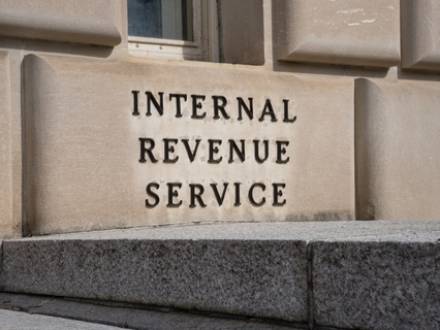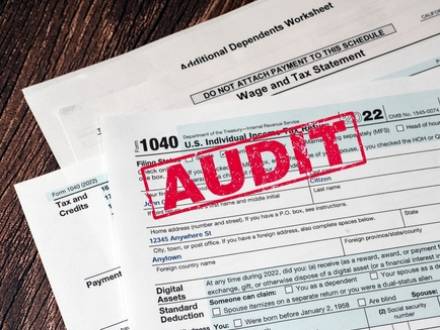Recent Blog Posts
Changes to Contribution Limits for 401(k)s and IRAs in 2025
 Planning for retirement can be crucial for nearly everyone. Many people use employer-sponsored 401(k) accounts, or they may contribute to Individual Retirement Accounts (IRAs). There are certain limits on the amounts that can be contributed to retirement accounts each year, but these limits are regularly updated. Some taxpayers may also be able to "catch up" on contributions as they get closer to retirement, ensuring that they will have enough money saved to meet their needs in the future.
Planning for retirement can be crucial for nearly everyone. Many people use employer-sponsored 401(k) accounts, or they may contribute to Individual Retirement Accounts (IRAs). There are certain limits on the amounts that can be contributed to retirement accounts each year, but these limits are regularly updated. Some taxpayers may also be able to "catch up" on contributions as they get closer to retirement, ensuring that they will have enough money saved to meet their needs in the future.
The Internal Revenue Service (IRS) recently announced adjustments to the contribution limits for retirement accounts, and these changes will go into effect in 2025. Understanding these changes is essential for taxpayers who are aiming to maximize their retirement savings and the associated tax benefits. An experienced San Jose, CA attorney can help address legal issues related to retirement contributions, ensuring that taxpayers can take advantage of tax benefits and that employers understand the requirements they must meet when offering retirement benefits for employees.
IRS Ends Automatic Penalties for Late Filing of Form 3520 or 3520-A
 U.S. taxpayers who own foreign assets or receive assets from foreign sources face a variety of complex reporting requirements. Failure to file the correct forms with the IRS can result in substantial penalties. However, a recent policy change by the IRS may provide some relief for these taxpayers. The IRS will no longer impose automatic penalties for late filing of certain forms, and taxpayers may be able to avoid penalties by demonstrating that they had a reasonable cause for failing to file.
U.S. taxpayers who own foreign assets or receive assets from foreign sources face a variety of complex reporting requirements. Failure to file the correct forms with the IRS can result in substantial penalties. However, a recent policy change by the IRS may provide some relief for these taxpayers. The IRS will no longer impose automatic penalties for late filing of certain forms, and taxpayers may be able to avoid penalties by demonstrating that they had a reasonable cause for failing to file.
The procedures that must be followed when reporting foreign assets and income can be complicated, and taxpayers need to understand the steps they can take to avoid penalties and minimize their tax burdens. Assistance from a skilled and experienced San Jose, CA attorney can be crucial when dealing with tax law concerns.
IRS May Conduct More Tax Audits for Pass-Through Entities
 The IRS has announced increased efforts to audit certain tax arrangements associated with pass-through entities, including partnerships, LLCs, S corporations, and trusts. These entities are often used by high-income earners and larger companies, and while they offer tax advantages, they can also present complex tax reporting challenges. As the IRS intensifies its oversight, pass-through entities may experience tax audits. By working with a knowledgeable tax attorney, business owners can navigate these audits, resolve concerns raised by the IRS, and mitigate any penalties that may apply.
The IRS has announced increased efforts to audit certain tax arrangements associated with pass-through entities, including partnerships, LLCs, S corporations, and trusts. These entities are often used by high-income earners and larger companies, and while they offer tax advantages, they can also present complex tax reporting challenges. As the IRS intensifies its oversight, pass-through entities may experience tax audits. By working with a knowledgeable tax attorney, business owners can navigate these audits, resolve concerns raised by the IRS, and mitigate any penalties that may apply.
IRS Opens New Employee Retention Credit Supplemental Claim Process
 Recently, the IRS has focused attention on the Employee Retention Credit (ERC), which was created to provide relief to businesses that were affected by the COVID-19 pandemic. This credit was available for certain qualifying businesses in 2020 and 2021, but concerns have been raised about incorrect ERC claims made by businesses during those periods or in the subsequent years. The IRS is now investigating these claims, and taxpayers who made incorrect claims may be subject to tax audits and penalties. As part of these ongoing efforts, the IRS recently announced a supplemental claim process for third-party payers.
Recently, the IRS has focused attention on the Employee Retention Credit (ERC), which was created to provide relief to businesses that were affected by the COVID-19 pandemic. This credit was available for certain qualifying businesses in 2020 and 2021, but concerns have been raised about incorrect ERC claims made by businesses during those periods or in the subsequent years. The IRS is now investigating these claims, and taxpayers who made incorrect claims may be subject to tax audits and penalties. As part of these ongoing efforts, the IRS recently announced a supplemental claim process for third-party payers.
Because of the significant penalties that may apply for taxpayers who incorrectly claimed the Employee Retention Credit, it is important to work with an attorney to address this issue. A lawyer with a strong understanding of tax law can help determine the best course of action to help mitigate penalties and resolve any outstanding tax issues that may exist.
How Can Business Partners Report Property Distributed by a Partnership to the IRS?
 Business partnerships often distribute property or cash to partners as part of their share of the partnership’s income. Understanding how to properly report these distributions to the IRS is essential for avoiding tax issues down the line. Starting with the 2024 tax year, the IRS has introduced Form 7217, a new requirement for reporting property distributions to business partners. This form helps clarify the reporting obligations for the business partners.
Business partnerships often distribute property or cash to partners as part of their share of the partnership’s income. Understanding how to properly report these distributions to the IRS is essential for avoiding tax issues down the line. Starting with the 2024 tax year, the IRS has introduced Form 7217, a new requirement for reporting property distributions to business partners. This form helps clarify the reporting obligations for the business partners.
An attorney with experience in tax law and business tax issues can help business partners navigate the complexities of partnership property distributions and ensure that all reporting requirements are properly handled.
What Is Form 7217?
Form 7217 is a new IRS form required for partners who receive distributions of property from partnerships, ensuring that they properly report any income or gain from these distributions. It will be required in the 2024 tax year and future years. The form is used to report cash and non-cash property distributions, such as real estate, equipment, or inventory. This form must be filed by the partner along with their annual tax return. It will detail the type of property distributed and the aggregate basis and allocation basis of the property.
When Is a Company Exempt From Filing Beneficial Ownership Information Reports?
 The U.S. government requires most businesses to disclose their ownership structure under new rules set forth by the Financial Crimes Enforcement Network (FinCEN). This disclosure is part of the Beneficial Ownership Information Reporting (BOIR) requirement, which is meant to increase transparency and prevent criminal activity such as money laundering. However, certain companies are exempt from this requirement.
The U.S. government requires most businesses to disclose their ownership structure under new rules set forth by the Financial Crimes Enforcement Network (FinCEN). This disclosure is part of the Beneficial Ownership Information Reporting (BOIR) requirement, which is meant to increase transparency and prevent criminal activity such as money laundering. However, certain companies are exempt from this requirement.
Understanding whether a company is required to file a BOIR can help business owners, partners, shareholders, or other parties avoid penalties or other legal concerns. An experienced attorney can provide guidance and help ensure that small businesses or other companies maintain compliance with federal regulations.
What Are the Beneficial Ownership Information Reporting Requirements?
The BOIR requirement, which was put in place by the Corporate Transparency Act (CTA), mandates that most corporations, limited liability companies (LLCs), and other similar entities provide FinCEN with information about their "beneficial owners." A beneficial owner is any individual who directly or indirectly owns or controls 25 percent or more of a company’s ownership interests, as well as anyone else who exercises substantial control over the company’s operations. These rules are meant to deter illegal activities by making it harder for people to hide their identities behind complex corporate structures.
Can Streamlined Filing Procedures Be Used During a Tax Audit Related to Offshore Assets? | CA
 Taxpayers who own assets in other countries must meet certain requirements when reporting these assets to the IRS and paying any required taxes. The process of foreign investment reporting can be complex, and taxpayers who own multiple types of complex assets may not realize that they have failed to comply with their requirements.
Taxpayers who own assets in other countries must meet certain requirements when reporting these assets to the IRS and paying any required taxes. The process of foreign investment reporting can be complex, and taxpayers who own multiple types of complex assets may not realize that they have failed to comply with their requirements.
To help taxpayers come into compliance, the IRS offers streamlined filing procedures (commonly known as "streamlined compliance") for those who have unintentionally failed to report offshore assets. However, taxpayers may be uncertain about whether these streamlined procedures can be used if the IRS has already initiated a tax audit.
An experienced tax attorney can help taxpayers determine the best course of action when dealing with offshore tax issues and IRS audits. By receiving legal help and representation, taxpayers can take steps to meet their requirements while reducing their potential tax penalties.
What Is the Difference Between Injured Spouse Relief and Innocent Spouse Relief? | CA
 When married couples file taxes jointly, they share responsibility for the tax return and any taxes owed. However, there are situations where one spouse should not be held responsible for their partner's tax debts or actions that violated tax laws. The IRS provides two specific forms of relief to address these situations: Injured Spouse Relief and Innocent Spouse Relief. Each option has different requirements and provides different protections for spouses. An attorney with experience in tax issues related to divorce and other tax law concerns that may affect married couples can help people explore the best legal options for resolving IRS issues.
When married couples file taxes jointly, they share responsibility for the tax return and any taxes owed. However, there are situations where one spouse should not be held responsible for their partner's tax debts or actions that violated tax laws. The IRS provides two specific forms of relief to address these situations: Injured Spouse Relief and Innocent Spouse Relief. Each option has different requirements and provides different protections for spouses. An attorney with experience in tax issues related to divorce and other tax law concerns that may affect married couples can help people explore the best legal options for resolving IRS issues.
What Is Injured Spouse Relief?
When a couple files a joint tax return, the IRS may seize their refund to cover one spouse’s separate debts. These debts could include:
How to Respond to an Employee Retention Credit Disallowance Letter From the IRS
 To help businesses address losses experienced due to the COVID-19 pandemic, the Employee Retention Credit (ERC) was available in 2020 and 2021. However, some businesses may have made incorrect ERC claims. In some cases, this has been due to aggressive marketing by tax preparation services that have claimed that the ERC is a grant or government stimulus. The IRS is taking steps to address the large number of claims that have been made, and businesses that have made incorrect claims may be required to repay the credits they have received.
To help businesses address losses experienced due to the COVID-19 pandemic, the Employee Retention Credit (ERC) was available in 2020 and 2021. However, some businesses may have made incorrect ERC claims. In some cases, this has been due to aggressive marketing by tax preparation services that have claimed that the ERC is a grant or government stimulus. The IRS is taking steps to address the large number of claims that have been made, and businesses that have made incorrect claims may be required to repay the credits they have received.
Recently, the IRS announced that it is sending out "disallowance letters" to businesses that have filed ERC claims that are at a high risk of being incorrect. It will also be conducting tax audits of some businesses that have received ERC claims. Employers who have received these disallowance letters or who are concerned about potential penalties related to ERC claims may wish to consult with an attorney to determine their options for addressing these issues.
Are Tax Deductions Available for Cannabis Businesses?
 Owners of cannabis businesses face some unique challenges as they meet specific legal requirements related to cultivating, distributing, or selling marijuana. Business owners need to understand their tax obligations and whether certain types of deductions may be available to them. Navigating the complex tax landscape can be difficult, but with the help of an experienced tax attorney, business owners can take steps to address small business taxes and other types of taxes that may apply.
Owners of cannabis businesses face some unique challenges as they meet specific legal requirements related to cultivating, distributing, or selling marijuana. Business owners need to understand their tax obligations and whether certain types of deductions may be available to them. Navigating the complex tax landscape can be difficult, but with the help of an experienced tax attorney, business owners can take steps to address small business taxes and other types of taxes that may apply.
Federal Tax Limitations for Cannabis Businesses
While the state of California has legalized marijuana for medical and recreational use, cannabis is still classified as a Schedule I controlled substance by the federal government. This has limited the ability of cannabis business owners to claim deductions that would typically be available to businesses, while still requiring them to pay all applicable income and employment taxes. NOTE: Although in May 2024, the U.S. Department of Justice published a notice of proposed rulemaking to reschedule marijuana (cannabis) from a Schedule I controlled substance to Schedule III, this would only be a first step to easing federal restrictions on cannabis, and it may be a number of months or longer before there is any change to the current Schedule I classification.









